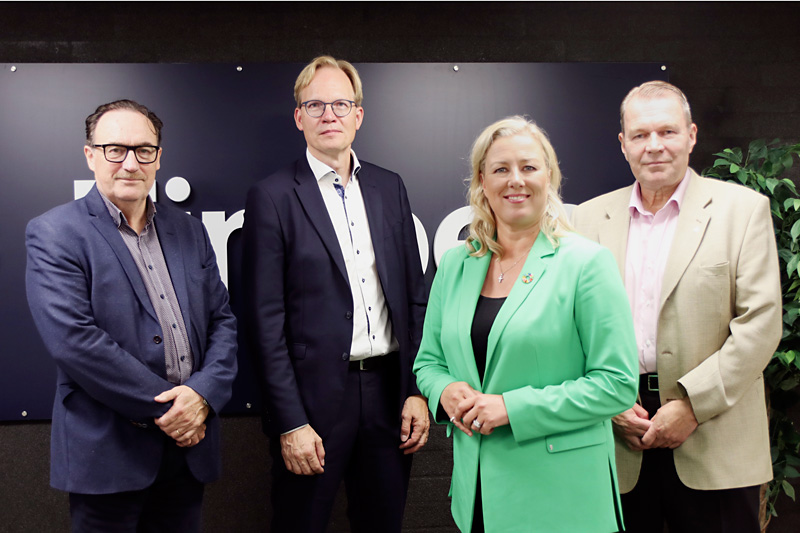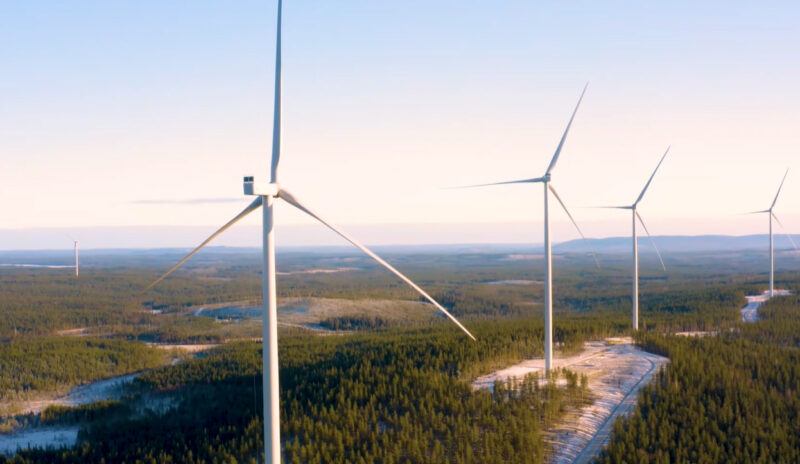EU Commissioner Jutta Urpilainen at Fimpec: “Finnish expertise needed in developing countries”

A clean transition and the opportunity for Finnish companies to export technological expertise to African and Latin American countries were key themes when EU Commissioner Jutta Urpilainen visited Fimpec’s office in Jyväskylä at the beginning of September.
EU Commissioner Jutta Urpilainen listened attentively as CEO Jukka Nieminen, Director Pekka Salomaa, and Business Unit Director Jorma Paananen explained the 50-year history of Fimpec’s operations. Environmentally friendly methods of producing energy took center stage, as Fimpec’s expertise enables the realization of green investments in the industrial and energy sectors.
“On an international level, we enable the implementation of Finnish clean technology export projects and strengthen the knowledge base in the consulting sector by recruiting international professionals to work on Fimpec’s projects in Finland and around the world,” Nieminen said.
For Urpilainen, energy issues, challenges in developing countries, and working in an international environment are familiar topics. She is responsible for a total of 126 countries in Africa, Latin America, Asia, the Caribbean, and the Pacific Islands.
Urpilainen was particularly interested in the local experts that Fimpec has managed to involve in Latin American projects. Salomaa noted that Fimpec’s implementation model has proven its effectiveness not only in Finland but also in international projects.
“There have been challenges, of course, but well-distributed delivery and contracting packages have enabled the participation of local small and medium-sized enterprises in the projects,” Salomaa stated.
“The EU’s goal is to invest in education in developing countries. In many countries, the challenge is that young people lack vocational training after basic education. One possibility is to tailor vocational training in cooperation with companies to ensure that they have access to local skilled labor for their projects,” Urpilainen pondered.
“It’s great that Fimpec is exporting Finnish expertise.”
Urpilainen commends Fimpec for boldly entering industrial projects in Latin America.
“For a long time, companies from Central and Southern European countries have been building industrial infrastructure in South America. It’s great that Finnish expertise has been included. I believe that Fimpec can further strengthen its international position with its service concepts.”
Urpilainen sees significant potential for Finnish expertise in Africa. Currently, the continent has 1.2 billion inhabitants, and this number is expected to double by the 2050s.
“Africa requires expertise in various fields to improve living conditions. There is demand, for example, for companies working in the energy sector, waste management, and water purification technology. The EU’s goal in Africa is to support the development of societies on multiple levels, increasing local value creation. Of course, Europe has its own interest in Africa’s natural resources for a clean transition. Locally, this approach has generated interest.”
According to Urpilainen, the EU’s Global Gateway strategy aims to initiate €300 billion in global investments by 2027 to promote social development and advance the clean transition.
“Public funds are not sufficient for everything, which is why key EU entities leverage private investments with guarantees,” Urpilainen explained.


